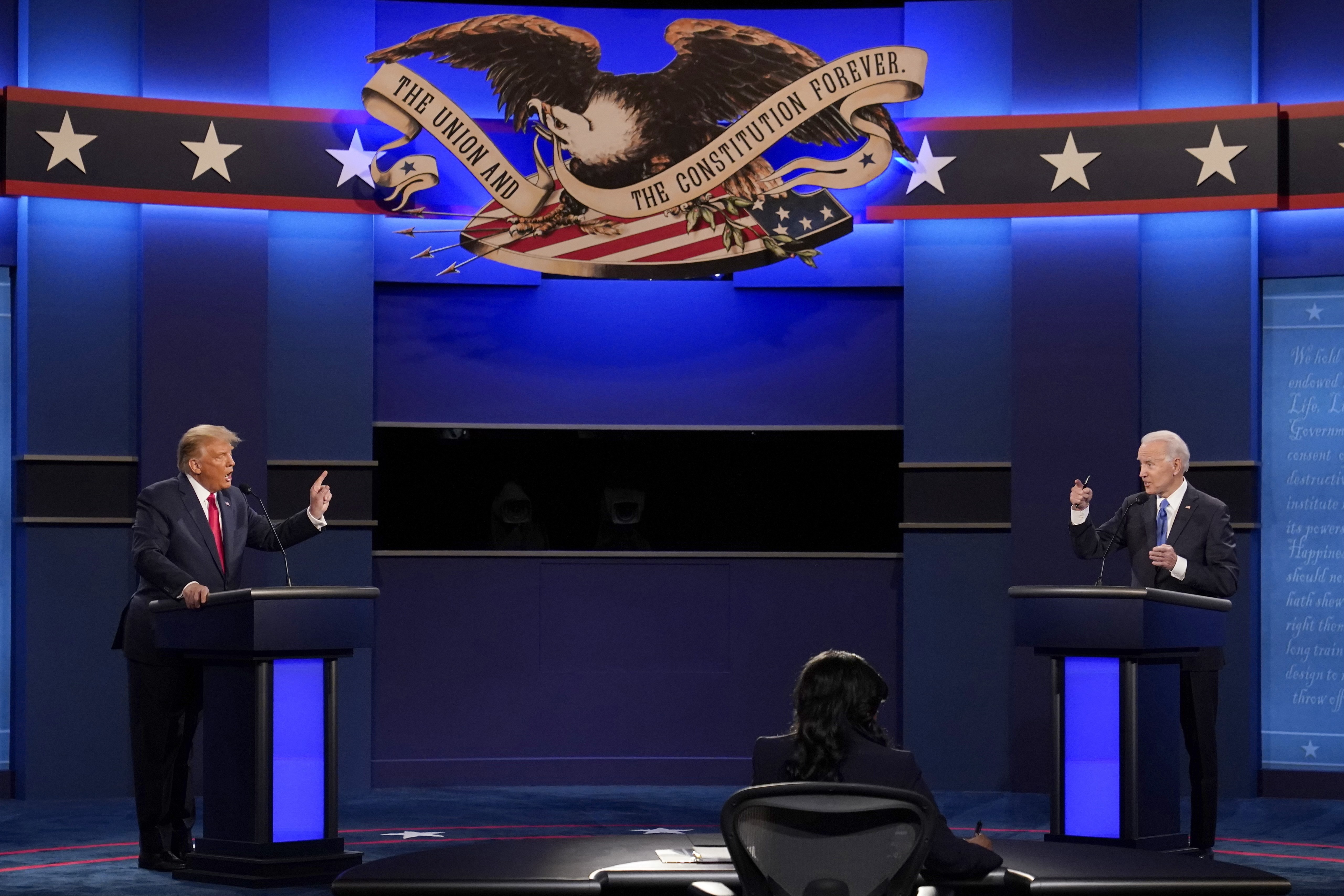New Rules: June Presidential Debate

(Photo Credit: AP News)
The first presidential debate of the 2024 election season is scheduled for June 27 on CNN, and the network has introduced some new rules. To explore how President Biden and former President Trump might prepare for this updated format, WFUV’s Jay Doherty interviewed Aaron Kall, the Director of Debate at the University of Michigan.
Doherty: CNN has put in place some new rules for this upcoming debate. As a debate coach, do you think these new policies will impact the style or strategy of each campaign as they prepare?
Kall: Well, I do. The lack of an audience is probably the biggest change from my perspective. The size of the audience, especially in primary debates, has been increasing in recent cycles, becoming more partisan and interjecting themselves into the debate. Candidates often feed off audience responses, so it increases the difficulty for both Trump and Biden, as they won't have that feedback. They'll have to rely on their instincts and past debate performances to gauge how well they're doing.
Doherty: In preparation for this piece, I watched a number of debates from previous decades, and I noticed, as time has gone on, the debates became less focused on policy and more on politics and attack lines. Do you think these new rules will produce a helpful dialogue about issues or just more attack lines?
Kall: I think that's the goal—to allow for a more substantive debate. But ultimately, it's up to the candidates. You're right that recent debates have focused more on memorable zingers that might go viral and dominate the media cycle, possibly aiding in fundraising. If you look back to the Kennedy-Nixon debates in 1960, those were very policy-focused. However, today, debates often involve more attacks. Part of it depends on the questions. Detailed, policy-oriented questions could foster fruitful exchanges, but controversial topics like Trump's legal issues, Hunter Biden's conviction, and social issues like abortion can make it challenging to have reasoned policy discussions due to strong polarization.
Doherty: As a debate coach, if you were coaching each of these candidates right now, what advice would you give them for the first debate?
Kall: For President Biden, the key is to avoid any disqualifying gaffes that could shift focus to his age and suitability for a second term. Avoiding moments like Rick Perry's infamous lapse in memory is crucial. Biden should model his performance after his State of the Union Address, where he managed a long speech well, despite concerns.
For Trump, defying expectations by being more subdued and presidential could be beneficial. Focusing on the economy, inflation, and immigration, contrasting his presidency with the current one, and avoiding personal attacks and interruptions would appeal to undecided voters or those on the fence. Discipline and focus are key.
Doherty: How will the timing of this debate play a role in how it is received by viewers?
Kall: The timing is unique—June 27th is the earliest debate we've ever had by three months. It's historic and timely, as it's before early voting and shifts focus to the election. However, people might be on vacation or thinking about the 4th of July and not as tuned in. The long gap between this debate and the next one in September means there's ample time to recover from a poor performance or build on a good one before the actual election in November.

